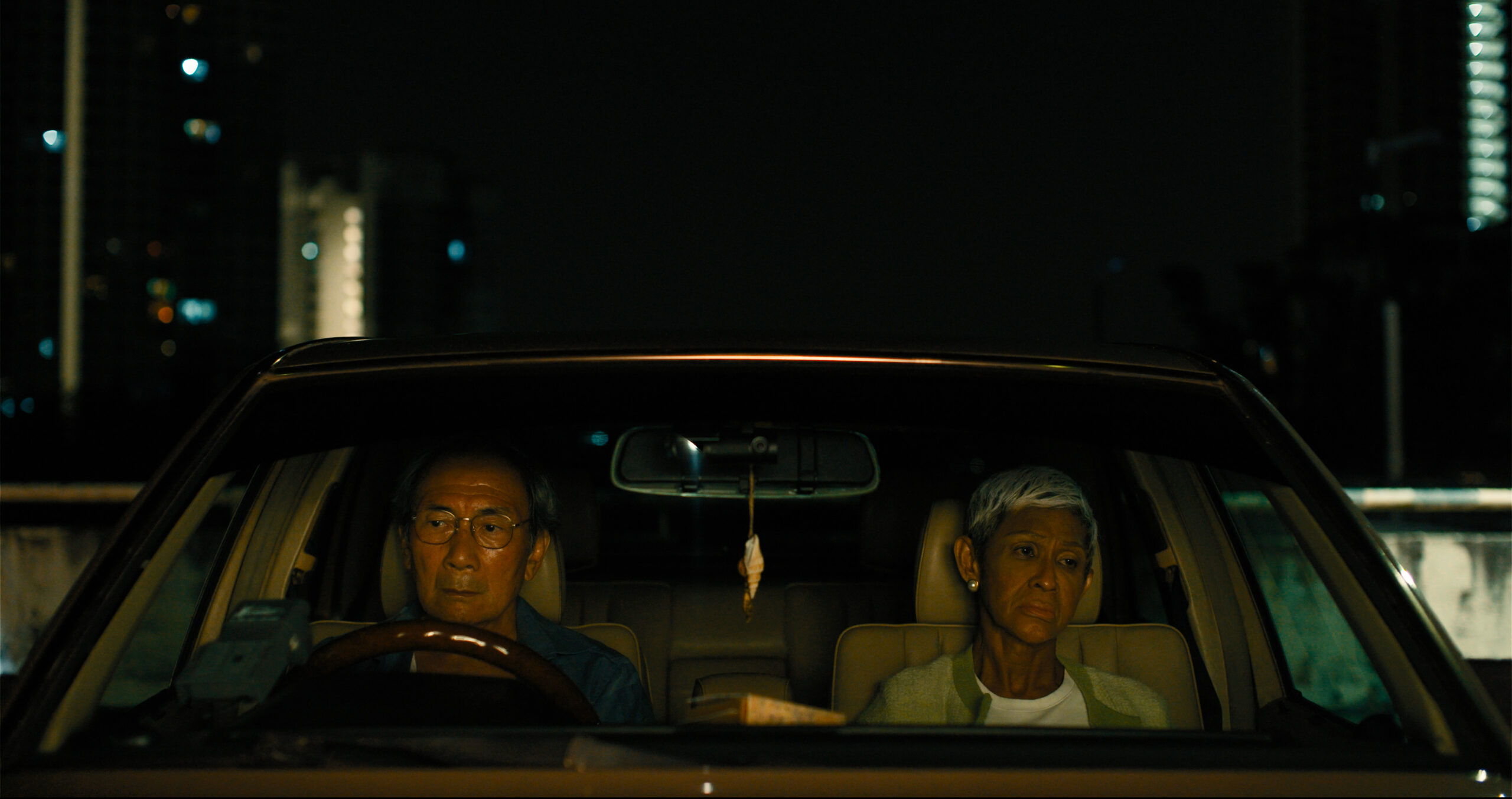The Old Man and His Car
Lao Po Che
VERDICT: Veteran Singaporean thespian Lim Kay Tong anchors ‘The Old Man and His Car’, Michael Kam’s sensitive and slow-moving feature debut about a retiree preparing to leave his house, his car and his memories for Canada.
“It’s better to be dead than sick in Singapore,” so says someone at the beginning of The Old Man and His Car. It’s hard not to see why: as the film unspools, Singaporeans – well, at least the old-timers we see on screen – come across as either grumpy, gross, gossipy or greedy. To his credit, Michael Kam redeems his characters with subtle drama that expands on the grief and guilt which made these Singaporean baby-boomers the off-putting grouchers they have become.
Featuring a quietly intense performance from Lim Kay Tong as an uptight pensioner facing down his chequered past and uncertain future, The Old Man and His Car offers a much more humanist and hopeful narrative than its Hemmingway-like international title might suggest. Having made its bow in Tokyo last month, it returns home as the curtain-raiser to the Singapore International Film Festival’s Singapore Panorama section.
With its simple premise, relatable characters and a mild-mannered (and sometimes comical) poke at the social mores of Singaporean society, The Old Man and His Car should still have quite a bit of mileage in it, as festival programmers seek stories which might appeal to a more mature audience in-sync with the dilemmas faced in middle age and beyond.
The film opens with a home video showing two toddlers having fun in the sun. Those were happier memories for Hock (played by Lim), a lonely ex-schoolteacher simmering in his own solitude as he wraps his Singaporean life up on the eve of joining his son in Canada. Living alone after the recent death of his wife, he takes his leave early when he meets a former colleague (Richard Low) whose never-ending complaints and sleazy humour he can’t stand. He backs off from selling his car – the one thing that he seems to be passionate about – to June (Kristin Tiara) after taking umbrage of her annoying demands for a close inspection of the automobile and then a discount as well.
The acerbic humour soon gives way to human drama, however, as Kam eases Hock’s backstory – and also that of his old and new acquaintances — into the equation. As he grovels to a cop to get out of a traffic fine and berates a petrol station attendant of his age for washing his car without asking, it’s hard to see the much-respected mentor he is supposed to be during his younger days. His transformation from hero to zero is slowly explained as writer-director Kam reveals – through Hock’s awkward exchanges with people around him – a tumultuous relationship with his wife as the couple struggle with a marital crisis, his anguish attending to her during her painful last days, and his troubled relationship with his children.
Hock’s reconciliation with himself and all around him is made complete with an intimate tête-à-tête inside (where else?) his car with June, whose garrulous veneer conceals a family history just as complicated and oppressive as Hock’s. This is hardly a trailblazing twist, or surprising even, but Kam never really sets out to shock anyway. The Old Man and His Car careers along smoothly with Kam – who teaches at one of Singapore’s leading film schools – offering a case study of sturdy storytelling. Cinematographer Jeremy Lau manages to evoke the loneliness prevalent in the ever-bustling Lion City with daytime outdoor images marked by dulled contrasts, and interiors – Hock’s mostly – with sharp shadows. It’s a stark journey, but one that’s worth embarking on.
Director, screenwriter: Michael Kam
Producers: Yeo Zhi Qi, Tang Kang Sheng, Angelina Marilyn Bok
Cast: Lim Kay Tong, Kristin Tiara, Richard Low, Vincent Tee
Director of photography: Jeremy Lau
Editor: Charliebebs Gohetia
Production designer: Javeus Toh
Music composer: Michael Asmara
Sound designer: Cheng Lijie
Production companies: Waking Life Pictures, Screentone, Kalehu
Venue: Singapore International Film Festival (Singapore Panorama)
In English, Mandarin and Hokkien
82 minutes

